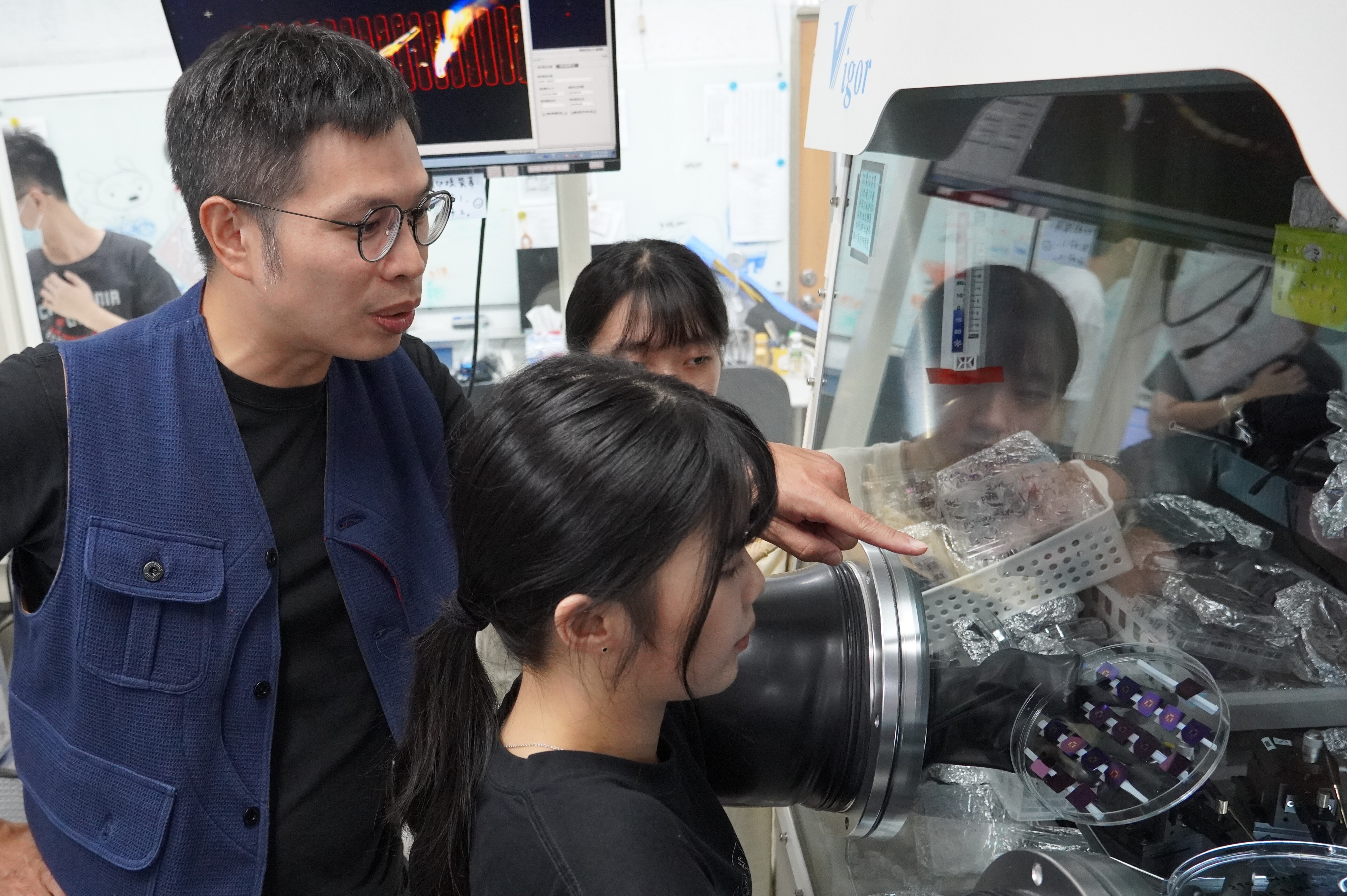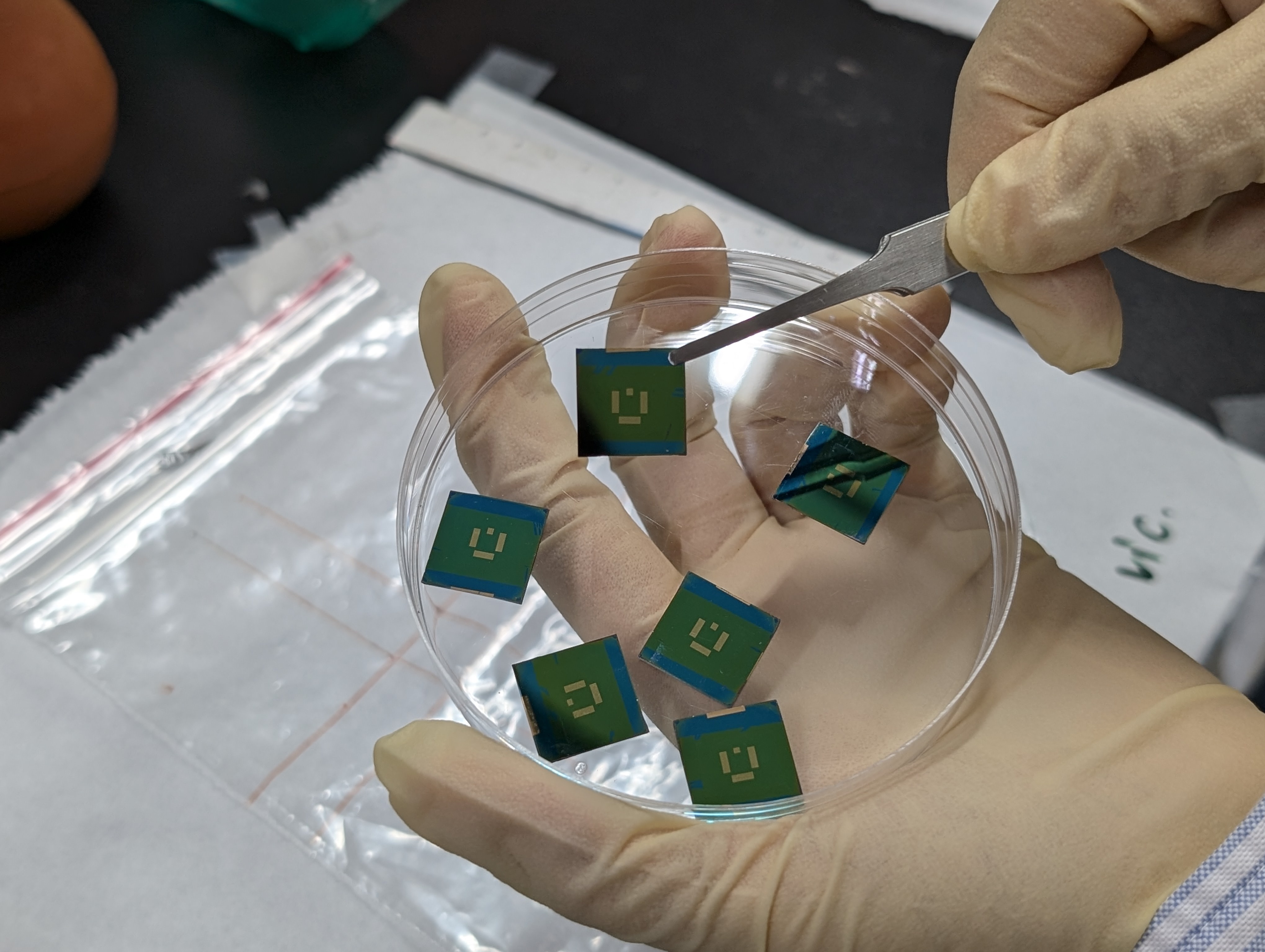Professor Yu-Cheng Chiu from Taiwan Tech wins Ta-You Wu Award for Innovative Self-Healing Semiconductor Technology.
Associate Professor Yu-Cheng Chiu from the Department of Chemical Engineering at Taiwan Tech has dedicated over 10 years to research in polymer science, stretchable and self-healing semiconductor materials, polymer semiconductors, and flexible optoelectronic devices. In recent years, he has combined traditional rubber with the latest semiconductor technologies to establish a nano self-healing platform, developing the first flexible semiconductor materials and devices with elastic self-healing capabilities. This innovation is expected to contribute to the development of electronic skin for biomedical sensing technologies, assisting in monitoring bodily inflammation indices and ionic changes. He was also honored this year (2024) with the Ta-You Wu Memorial Award.

Associate Professor Yu-Cheng Chiu from Taiwan Tech has combined semiconductor technology with traditional rubber to develop the first flexible semiconductor device with elastic self-healing capability. This achievement earned him the 2024 “Ta-You Wu Memorial Award."
Electronic skin is an important development direction in the future of biomedical sensing, and semiconductor materials with stretchable and self-healing properties may become one of the key technologies. These materials can enhance the lifespan of biomedical sensors and reduce maintenance costs. Professor Yu-Cheng Chiu notes that current research on electronic skin is still in progress. In the future, electronic skin could be applied to the brain or specific body parts to monitor inflammation levels and changes in chemical ions. For instance, an increase in zinc ion concentration in the brain may elevate the risk of Alzheimer's disease.
In addition, Professor Chiu has extended his expertise in polymer research to industry-academic collaborations, working with the Industrial Technology Research Institute and major paper pulp companies to develop waterproof, oil-resistant, antibacterial, and even antiviral coating technologies that do not contain fluorine. This coating can not only be applied to food packaging, fabrics, or furniture surfaces but may also used to replace plastic films in the future, making everyday items like hamburger wrappers and takeout containers more environmentally friendly and offering a more sustainable choice.
Since joining the faculty, Professor Chiu has published 80 SCI papers, with 44 as corresponding author. His total citations on Google Scholar exceed 6,400, and he has an H-index of 39, indicating widespread recognition of his research in the academic community. He has also led 24 industry-academic research projects and has received several awards, including the 2023 Changrong Li Outstanding Young Researcher Award, the 2022 Chinese Polymer Society Outstanding Young Polymer Technology Award, and the Outstanding Research Award from Taiwan Tech. He aims to implement these technologies in the industry.

Associate Professor Yu-Cheng Chiu instructs students on the preparation and measurement of polymer transistors.
In addition to his research achievements, Associate Professor Yu-Cheng Chiu serves as the Executive Director of the Semiconductor Executive Master of Research and Development (SEMI-EMRD) at Taiwan Tech. He emphasizes that academic research can invisibly train logical thinking and problem-solving skills, and even enhance English proficiency through reading foreign literature. He encourages students to maintain a positive mindset during their research journey and stresses that failure is a part of the academic process. He says, “Failure is the beginning of another story”, and hopes students can learn from setbacks, find their direction, and truly develop a passion for research.

First-year graduate students at Taiwan Tech examine polymer semiconductor transistor devices in the laboratory.
At 40 years old, Professor Yu-Cheng Chiu recalls that he was passionate about basketball in his youth and didn’t focus much on his studies. After graduating from a private university, he pursued a master's degree at Taiwan Tech and later obtained his Ph.D. from National Taiwan University. He then went abroad to Stanford University as a postdoctoral researcher. He has shown that with perseverance, even a graduate of a private university can excel alongside students from top international institutions, stating, “It's never too late to start with dedication!” He likens research to playing basketball or video games: once you find the direction, you proactively practice and explore various strategies. Although you are very tired physically, the process is deeply satisfying. Back at his alma mater, he advises students to “find what you want to do in every phase of your life” and to put in the effort and passion needed to pursue it.
Professor Chiu is also actively involved in international collaborations with research institutions in the U.S., Europe, Japan, Indonesia, and South Korea. These cross-national and interdisciplinary exchanges enrich his research and foster the application of technologies globally, providing him with fresh innovative ideas. His Polymer Morphology & Electronics Lab hosts many students from Indonesia and diverse international visiting scholars, guiding them in the innovative development of bioplastics and polymer semiconductors. He looks forward to more young scholars interested in the polymer field joining efforts to advance Taiwan's development in polymer materials and semiconductors.

Associate Professor Yu-Cheng Chiu (third from the right) takes a group photo with graduate students from the Polymer Morphology & Electronics Lab.
